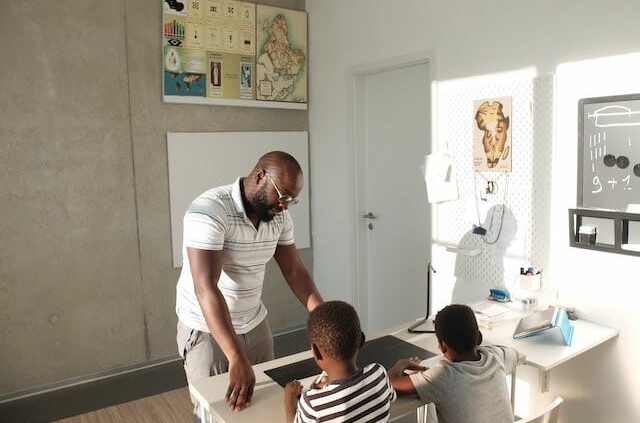Explicar el autismo a los demás
Muchos niños padecen un trastorno del espectro autista. Saber cómo explicar el autismo a los demás puede resultar muy útil, ya que comprenderán las diferencias y cómo interactuar con su hijo. Aunque algunos pueden tener experiencia sobre cómo se ve el autismo, es una buena idea comenzar a explicarlo con los comportamientos básicos asociados con él. Los comportamientos repetitivos, la falta de contacto visual, la dificultad con las habilidades sociales, la sensibilidad sensorial y la baja capacidad de atención son algunos de los signos reveladores más comunes.
A continuación se detallan algunos aspectos importantes que uno debe enseñar y concienciar a otros cuando se trata de niños en el espectro.
Explique las dificultades que enfrentan:
Enséñeles cómo el autismo es una discapacidad del espectro y cómo afecta al niño y sus comportamientos. Por ejemplo, su hijo se siente abrumado fácilmente en grandes multitudes, lo que puede provocar una respuesta intensa a la situación.
- Cuando le explique el TEA a otro niño, tenga en cuenta que no se trata de una conversación única, sino de un proceso continuo. Los otros niños necesitarán tiempo para procesar la nueva información que se les proporcione. Permítales hacer preguntas a su propio ritmo, lo que resultará en una actitud más tranquila tanto en los niños como en la mamá.
- Recuerde, si comparte la información con otros de manera positiva y segura, ellos reflejarán su respuesta.
- Describe cómo los niños autistas tienen dificultades para comunicar sus sentimientos.
- When explaining autism to children (or even adults!) use metaphors to give them a better understanding. Try something like this: “The ASD child’s brain works like a clothing iron that achieves an important task and your brain works like a washing machine, which is also just as useful. However, you can’t clean clothes with an iron and you can’t straighten clothes with a washing machine, but both of them are very important contributions to the world. They’re just different.”
- Make it clear that it is okay to be different, there’s is nothing “bad” about a person with ASD.
- Encourage your children to ask questions. Offering them books to read if it is age appropriate can be helpful for them.
- Explain that even if an autistic child is verbal, they probably will have difficulty understanding and carrying a typical conversation.
- Focus on being supportive with your friends and family’s adjustment.
Teach them some of the amazing strengths children on the spectrum can have:
Children on the spectrum have deep passions and intense interests which sometimes cause them to excel beyond the norm. Many of them have unique strengths or talents that can be very unassuming when seeing them in a specific setting.
Some of the common strengths they possess:
- Some children can read at a very early age
- Art, music, math, & mechanical skills are abilities that many of them have
- Exceptional memory is a common strength
- Excellent attention to detail
For a more detailed list of unique strengths in children with autism, check out the this amazing artículo.
An official diagnosis will benefit both child and family. Don’t hesitate to reach out for help and guidance. Feel free to contacto us for any additional information to seek therapies and services that can be transformative.




